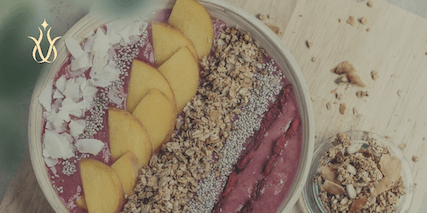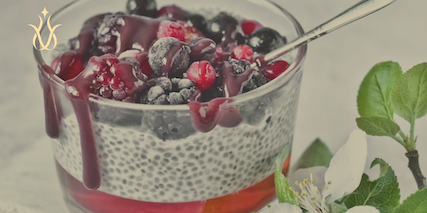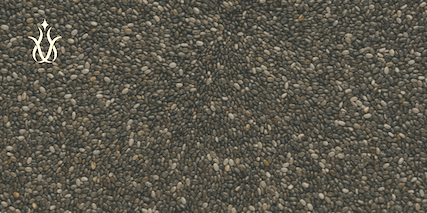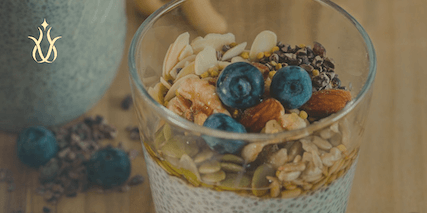Chia seeds are more than just a health trend; they are a nutritional powerhouse packed with benefits. This comprehensive guide delves into the proven health advantages of incorporating chia seeds into your diet. Rich in omega-3 fatty acids, fiber, and antioxidants, chia seeds help improve heart health, stabilize blood sugar, and enhance digestive health. Additionally, their ability to absorb water and expand can aid in weight management by promoting a feeling of fullness. Learn practical tips for adding chia seeds to smoothies, yoghurts, and baked goods to boost your nutritional intake effortlessly.
Key Takeaways
- Chia seeds are a nutritional powerhouse, rich in omega-3 fatty acids, fibre, antioxidants, and minerals, enhancing overall well-being and digestive health.
- Regular intake of chia seeds can improve heart health by reducing inflammation and contributing to cardiovascular benefits thanks to their omega-3 content.
- The high fiber content in chia seeds aids in weight management by promoting satiety and can play a role in stabilizing metabolism.
- All the advantages of Chia seeds can be easily incorporated into your diet through simple additions to meals and snacks, as well as in cooking, baking, and making chia pudding.
- While chia seeds offer many health benefits, it’s important to consume them in moderation and understand the right amount to eat to avoid potential risks and side effects.
Nutritional Powerhouse of Chia Seeds
Rich in Omega-3 Fatty Acids
Chia seeds are a nutritional treasure, particularly for their high content of alpha-linolenic acid (ALA), a type of omega-3 fatty acid. This advantage of chia seeds is crucial, as omega-3s are essential fats that the body cannot produce on its own. Consuming chia seeds can lead to numerous health benefits, including improved heart health and reduced inflammation.
Chia seeds contain more omega-3 fatty acids by weight than salmon, making them an exceptional plant-based source of these vital nutrients.
Omega-3s in chia seeds not only support cardiovascular health but also contribute to the maintenance of healthy skin, hair, and nails. The presence of antioxidants in chia seeds further protects these fats from oxidation, ensuring their potency and effectiveness.
High Fiber Content for Digestive Health
Chia seeds are a powerhouse of dietary fibre, with a single ounce containing about 9.75 grams. This high fibre content is crucial for maintaining digestive health, as it promotes regular bowel movements and may prevent constipation.
Incorporating chia seeds into your diet can enhance gut health by supporting the growth of beneficial bacteria and ensuring smooth digestion. The soluble fibre in chia seeds also contributes to a feeling of fullness, aiding in weight management.
The rich fibers in chia seeds play a significant role in regulating blood sugar levels and can be particularly beneficial for individuals managing type-2 diabetes.
Chia Seeds for Constipation
Chia seeds (Salvia Hispanica L.) are recognized for their high content of dietary fibre, which may have a role in the management of constipation. The fibre in chia seeds can absorb water and increase stool bulk, potentially improving bowel regularity. However, the clinical evidence specifically addressing the efficacy of chia seeds for treating constipation in humans is not robust.
Antioxidants and Minerals for Overall Well-being
Chia seeds are a treasure trove of essential nutrients that bolster overall health. Rich in antioxidants, they combat oxidative stress and protect cells from damage. These tiny seeds are also packed with minerals vital for bone health and muscle function, including calcium, magnesium, and phosphorus.
One of the benefits of chia seeds in water is their ability to hydrate while providing a nutrient boost. Soaking chia seeds enhances their antioxidant properties and makes them easier to digest, ensuring you reap the full spectrum of their health advantages.
Chia seeds’ diverse nutrient composition not only supports heart health but also plays a crucial role in reducing the risk of chronic diseases, making them a powerful addition to any diet.
Advantages of Chia Seeds for Heart Health

Omega-3s and Cardiovascular Benefits
Chia seeds are a heart-healthy choice, packed with alpha-linolenic acid (ALA), a type of omega-3 fatty acid. These essential fats are known to enhance cardiovascular wellness by lowering blood pressure and reducing triglyceride levels while simultaneously increasing HDL (the “good”) cholesterol.
- Lower blood pressure: Omega-3s help relax blood vessels, reducing strain on the heart.
- Reduce triglycerides: A decrease in these fats lowers the risk of heart disease.
- Boost HDL cholesterol: Higher levels of HDL are associated with better heart health.
Chia seeds’ ability to balance blood lipid profiles makes them a powerful ally against heart attack, stroke, and atherosclerosis. Their rich content in phytosterols, particularly beta sitosterol, contributes to this protective effect.
Anti-inflammatory Properties of Chia Seeds
Chia seeds are celebrated for their anti-inflammatory properties, primarily due to their high alpha-linolenic acid (ALA) content, a type of Omega-3 fatty acid. Regular consumption can help mitigate inflammation, which is a common factor in chronic diseases such as heart disease, diabetes, and cancer.
Omega-3 fatty acids in chia seeds not only reduce inflammation but also play a crucial role in maintaining heart health and cognitive function. By integrating chia seeds into your diet, you can enjoy these health benefits:
- Reduction of inflammation markers in the body
- Lowered cholesterol levels
- Enhanced cognitive performance
Chia seeds’ fiber content further supports anti-inflammatory effects by regulating bowel function and contributing to cholesterol management.
Incorporating Chia Seeds for a Healthier Heart
Incorporating chia seeds into your diet is a straightforward strategy for improving heart health. Chia seeds ameliorate cardiac disease risk factors by reducing inflammation and regulating cholesterol levels.
These tiny seeds pack a powerful punch, lowering LDL cholesterol and raising HDL cholesterol, which are key to preventing heart disease.
Additionally, the omega-3 fatty acids in chia seeds, particularly alpha-linolenic acid (ALA), are instrumental in cardiovascular protection. They help to lower blood pressure and triglyceride levels, further safeguarding against heart-related issues.
- Lower LDL (bad) cholesterol
- Raise HDL (good) cholesterol
- Reduce blood pressure
- Decrease triglyceride levels
Advantages of Chia Seeds for Weight Management and Satiety
Fiber-Rich Chia Seeds and Weight Control
Thanks to their high fibre content, Chia seeds are a powerhouse for weight management. This soluble fibre absorbs water and expands in the stomach, enhancing the feeling of fullness and reducing overall calorie intake.
- High in soluble fibre
- Promotes satiety
- May reduce appetite
Eating chia seeds benefits digestion, stabilizing blood sugar levels and minimizing insulin spikes. This helps in controlling cravings and supports a steady weight loss journey.
By incorporating chia seeds into your diet, you can experience prolonged satiety, which is essential in preventing overeating and managing weight effectively.
The Role of Chia Seeds in Metabolism
Chia seeds enhance metabolism, aiding in the efficient breakdown of carbohydrates, fats, and proteins. Their ability to absorb water and expand in the stomach promotes a feeling of fullness, which can help control hunger and reduce calorie intake.
Chia seeds are not just about weight control; they also offer a nutritional boost that supports overall health. By incorporating them into your diet, you can enjoy the dual benefits of improved metabolism and sustained energy levels.
Chia seeds’ high fiber and protein content contribute to increased satiety and a more dynamic metabolism, making them a smart choice for weight management.
Creating Satisfying Meals with Chia Seeds
Chia seeds effortlessly enhance meal satisfaction due to their high fibre content, which promotes a feeling of fullness. Incorporate chia seeds into your diet by adding them to various dishes, making each bite more nutritious and satiating. For instance:
- Yoghurt: Stir in a tablespoon of chia seeds to boost fibre.
- Oatmeal: Mix in chia seeds for a heartier breakfast.
- Salads: Sprinkle chia seeds for added texture.
- Smoothies: Enrich your drink with chia seeds.
- Chia Pudding: Soak seeds overnight for a delicious treat.
By integrating chia seeds into your meals, you can easily increase the nutritional value while also aiding in weight management. Their versatility in cooking and baking further expands the possibilities for creating fulfilling and healthful dishes.
Versatile Ways to Add Chia Seeds to Your Diet

Simple Additions to Meals and Snacks
Chia seeds can be seamlessly integrated into your daily meals and snacks. Sprinkle them onto yogurt or cereal for a nutritious start to your day or add a crunchy texture to your salads. For a fibre-rich addition, blend chia seeds into your smoothies or create a satisfying chia gel to thicken dressings and puddings.
Chia seeds are not only versatile but also easy to digest, especially when pre-soaked to form a gel. This method is particularly beneficial for those looking to avoid digestive discomfort.
- Yoghurt
- Cereal
- Salads
- Fresh Fruit
- Smoothies
- Chia pudding
By incorporating chia seeds into various dishes, you ensure a boost in fiber and omega-3 fatty acids, essential for maintaining good health.
Chia Seeds in Cooking and Baking
Chia seeds effortlessly elevate the nutritional value of your meals, especially when used in cooking and baking. Transform traditional recipes by incorporating chia seeds for an added fibre and omega-3 boost. Here’s how you can integrate them into your culinary creations:
- Baked Goods: Add chia seeds to dough or batter for a healthier twist on bread, muffins, and pancakes.
- Egg Replacer: Combine chia seeds with water to replace eggs in vegan recipes.
- Thickeners: Use chia seeds to naturally thicken sauces and gravies.
Chia seeds not only enhance the texture and nutrition of your dishes but also offer a simple way to enrich your diet.
For instance, the Banana and Chia Seed Muffins recipe by April J Harris swaps out butter for vegetable oil, maintaining delicious flavor while adding the health benefits of chia seeds.
Making Delicious and Nutritious Chia Pudding
Chia pudding is a versatile and easy-to-make treat that can serve as a nutritious breakfast or snack. Simply soak chia seeds in your choice of milk or a plant-based alternative, and let the magic happen overnight. The result is a creamy and satisfying pudding that’s loaded with protein and fibre.
- Ingredients: To start, you’ll need chia seeds, milk (dairy or plant-based), and a sweetener of your choice.
- Preparation: Mix the ingredients in a bowl or jar, cover, and refrigerate overnight.
- Customization: Enhance your pudding with fruits, nuts, or spices for added flavour and nutrition.
Embrace the simplicity of chia pudding as a staple in your meal prep routine. It’s a delightful way to enjoy the health benefits of chia seeds with minimal effort.
Balancing Chia Seed Consumption

Understanding the Right Amount to Eat
Determining the optimal intake of chia seeds is crucial for reaping their health benefits without overindulging in calories. A tablespoon of chia seeds contains approximately 60 calories, which can add up quickly in larger servings.
While there’s no one-size-fits-all answer, a common recommendation is to consume around 1 to 2 tablespoons of chia seeds daily.
Incorporating chia seeds into your diet should be done mindfully, considering their caloric content alongside your overall nutritional goals.
Chia Seeds Calories
In a typical serving, which is about one tablespoon or approximately 12 grams of chia seeds, there are around 60 calories. This small serving packs a punch with its content of fiber, protein, omega-3 fatty acids, and various micronutrients, making chia seeds a dense and beneficial addition to various meals.
Chia Seeds Side Effects
While chia seeds are a superfood, they are not free from potential risks and side effects. Some individuals may experience allergic reactions, especially if they have sensitivities to other seeds or nuts. Too many chia seeds can lead to gastrointestinal discomfort, including bloating and constipation, can occur, particularly when consumed in large quantities.
It’s crucial to consume chia seeds in moderation to avoid these side effects.
Here’s a quick list of side effects to be aware of:
- Allergic reactions
- Gastrointestinal issues like bloating and constipation
- Possible impact on prostate cancer
Always consult with a healthcare provider before making significant changes to your diet, especially if you have existing allergies or health concerns.
Expert Tips for Optimal Chia Seed Intake
To harness the full potential of chia seeds, start by integrating them into your daily routine in moderation. A common recommendation is 20 grams (about 1.5 tablespoons) twice a day, ensuring you gain the benefits without excess. For a refreshing twist, try adding chia seeds and lemon water to your morning regimen; simply soak the seeds overnight in lemon water for a hydrating start to your day.
- Experiment with chia seeds in various recipes to keep your diet interesting.
- Monitor your body’s response to chia seeds, adjusting intake if necessary.
Optimal chia seed consumption involves balance and attentiveness to your body’s needs, allowing for a nutritious addition to your diet without overindulgence.
Conclusion: Embracing the Superfood
In summary, chia seeds are a remarkable superfood that can significantly enhance one’s health and well-being. The many health advantages of chia seeds in your diet are compelling. Their high fibre content, omega-3 fatty acids, proteins, and antioxidants contribute to a myriad of health benefits, including improved heart health, better digestion, and weight management. By incorporating chia seeds into your diet, you’re not only adding a versatile ingredient to your culinary repertoire but also investing in a nutrient-rich food that supports overall health. Whether sprinkled on a salad, mixed into a smoothie, or used as a pudding base, chia seeds offer a simple yet powerful way to boost your nutritional intake. Remember, moderation is key, and with the right balance, chia seeds can be a delightful and beneficial addition to a healthy lifestyle.
Frequently Asked Questions
What are the main health benefits of chia seeds?
Chia seeds (Salvia hispanica L.) have been identified as a rich source of nutrients and bioactive compounds with potential health benefits. They are particularly noted for their high content of alpha linolenic acid (ALA), a plant-based omega-3 fatty acid, which is important for cardiovascular health.
The consumption of chia seeds has been associated with improvements in cardiovascular disease risk factors, including reductions in blood glucose, triglycerides, total cholesterol, and low-density lipoprotein cholesterol, as well as increases in high-density lipoprotein cholesterol.
Additionally, chia seeds are a significant source of dietary fibre, which can promote intestinal health, reduce blood sugar levels and aid in the management of diabetes mellitus.
The presence of antioxidants such as chlorogenic acid, caffeic acid, myricetin, quercetin, and kaempferol in chia seeds suggests potential anti-inflammatory, anti-ageing, and anti-carcinogenic properties.
Chia seeds also contain a variety of phenolic compounds, vitamins, and minerals, which contribute to their overall nutritional value and have been linked to hypoglycemic, antimicrobial, anticancer, anti-inflammatory, antioxidant, antihypertensive, anti-obesity, and cardioprotective properties.
Furthermore, the seeds have been shown to improve liver inflammation and endothelial dysfunction in an experimental model of metabolic syndrome.
How can chia seeds aid in weight management?
The high fibre content in chia seeds may help control appetite and promote a feeling of fullness, which is beneficial for weight management. Additionally, their protein and fat balance can help stabilize high blood sugar levels, supporting metabolism.
What are some simple ways to incorporate chia seeds into my diet?
Chia seeds can be easily added to smoothies, yoghurt, salads, and baked goods or used as a thickening agent in sauces. You can also make chia pudding by soaking the seeds in a liquid and adding toppings of your choice.
Can eating chia seeds have any side effects?
While chia seeds are generally safe for most people, consuming them in excessive amounts may lead to digestive issues due to their high fibre content. It’s important to balance your intake and consume them in moderation.
How do chia seeds support heart health?
Chia seeds are rich in omega-3 fatty acids, which have been shown to lower the risk of heart disease by reducing blood pressure, lowering triglyceride levels, and decreasing inflammation.
What are the Benefits of Chia Seeds in Water?
Soaking chia seeds in water or lemon water is a common practice that enhances their nutritional benefits and versatility. Here are some of the key advantages of consuming chia seeds in water:
- Improved Digestibility: When chia seeds are soaked, they absorb water and expand, forming a gel-like consistency. This process breaks down their outer shell, making the seeds easier to digest and allowing the body to access their nutrients more efficiently.
- Hydration Boost: The gel that forms when chia seeds are soaked has a high water content, which can help maintain hydration. This is particularly beneficial for athletes or anyone needing sustained energy and hydration throughout the day.
- Extended Fullness: The soluble fibre in chia seeds can help to prolong feelings of fullness. This is because the gel that forms in the stomach slows the absorption of food, which can help control appetite and potentially aid in weight management.
- Versatility in Diet: Soaked chia seeds can be easily incorporated into a variety of dishes. They can be added to smoothies, spread onto toast, mixed into oatmeal, or even used as a vegan substitute for eggs in baking by allowing them to gel in water.
- Enhanced Nutrient Absorption: Soaking chia seeds may increase the availability of certain nutrients, such as omega-3 fatty acids and minerals, making them more beneficial than consuming them dry.
Are there any expert tips for optimizing chia seed intake?
Experts recommend starting with a small amount of chia seeds and gradually increasing the intake to allow your body to adjust. Consuming plenty of water is also important, as chia seeds absorb liquid and expand.
Disclaimer: This article is for informational purposes only and should not replace professional medical advice. If you have specific concerns or medical conditions, it is recommended to consult with a healthcare professional for personalised guidance and support.
Resources:
Therapeutic Perspectives on Chia Seed and Its Oil: A Review.
Parker J, Schellenberger AN, Roe AL, Oketch-Rabah H, Calderón AI.
Planta Medica. 2018;84(9-10):606-612.
Nutritional and Therapeutic Perspectives of Chia (Salvia Hispanica L.): A Review.
Ullah R, Nadeem M, Khalique A, et al.
Journal of Food Science and Technology. 2016;53(4):1750-8.
Vega Joubert MB, Degrave V, Ingaramo P, Oliva ME, D’Alessandro ME.
Food & Function. 2022;13(21):11249-11261.
The Current State of Knowledge on and (Chia Seeds).
Motyka S, Koc K, Ekiert H, et al.
Molecules (Basel, Switzerland). 2022;27(4):1207.








